The Potato Diet

After the dust settled from our extended anniversary celebration with our friends and family, Jamie and I embarked on a new adventure: The Potato Diet.
For those of you who are as yet unfamiliar, The Potato Diet is exactly what it sounds like: eat only potatoes–as many as you want, whenever you want, but nothing else (exceptions: salt, seasonings, hot sauces, and oil to cook with are all acceptable; we also decided to take a daily multivitamin).
Our trial was inspired by some articles Jamie found. The author was hearing all these stories of people getting significant weight-loss (and other nice-sounding) results from an all-potato diet. He wanted to conduct a study of his own, and sought The Internet for participants. Here are links to the original trial, which details the diet in full, and the initial results.

My motivations for trying this obviously ridiculous diet were two-fold:
- To clean up my eating a bit/lose a little weight – Many visits from friends and family meant that I ate very decadently for an entire month. While I loved every bite, I also felt a little gross by the end of it. My weight only picked up a little bit during this time, but Jamie had been moderately concerned about his weight since I moved in last year (totally uncorrelated events, I’m sure). This seemed as good a time as any to try changing up our eating habits for a while.
- To separate eating from emotion/time/anything other than being hungry – I have realized recently that I apparently experience hunger very differently from other people. I am always hungry and am never satiated, no matter how much I eat. I know I can’t have a constant stream of food going into my mouth, so I tend to just eat at the times you’re supposed to eat and try not to eat “too much.” I thought this was how it was for everyone, but Jamie has informed me that some (most??) people have some sort of appetite sensor. I hoped that by eating just potatoes (delicious but also boring), I could become more intune to whatever it is y’all are feeling.
The Potato Experience
The first few days of the diet were mostly hilarious. Potatoes provide a little less than 1 calorie per gram, so to reach a target of 2,000 calories per day, we’d each need to eat approximately 4.5 pounds of spuds (about 13 potatoes, give or take). For one week, this looks like 30 pounds of taters per person, so we hauled 70 pounds of the stuff home from the grocery store on Day One.
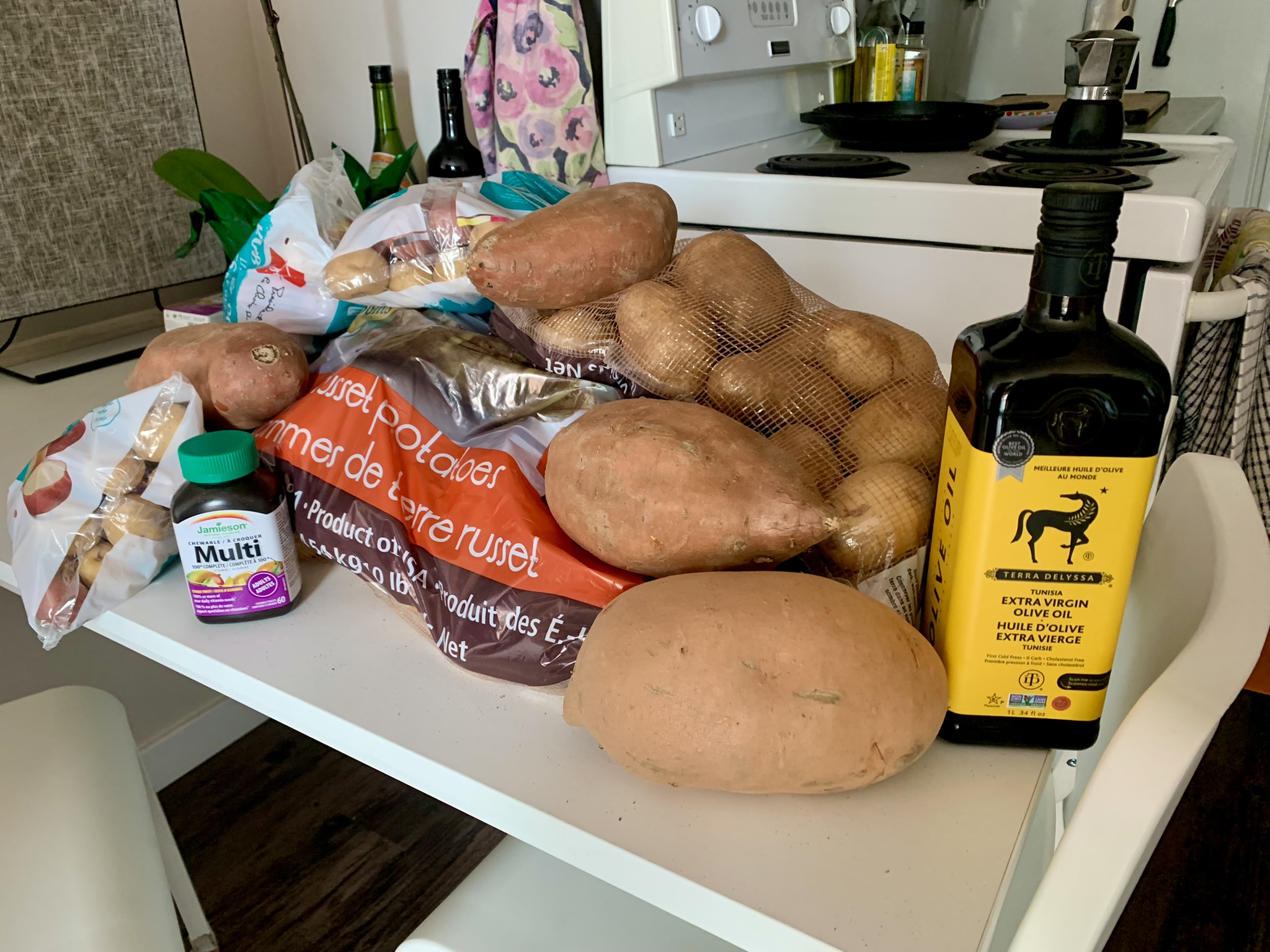
After that, I got endless entertainment from opening up the refrigerator to see stacks on stacks (on stacks) of tupperware containing baked potatoes, and finding mounds of potatoes stashed in every cupboard in the kitchen. If I didn’t find it so funny, I might’ve thought it nightmarish.
For convenience, we prepared most of the potatoes by baking them and keeping them in the fridge until we were hungry. As the mood struck, we’d take one or two out at a time to eat, either heating them up in the microwave, smash-frying them on the stovetop, or (if we were particularly lazy) just cold.
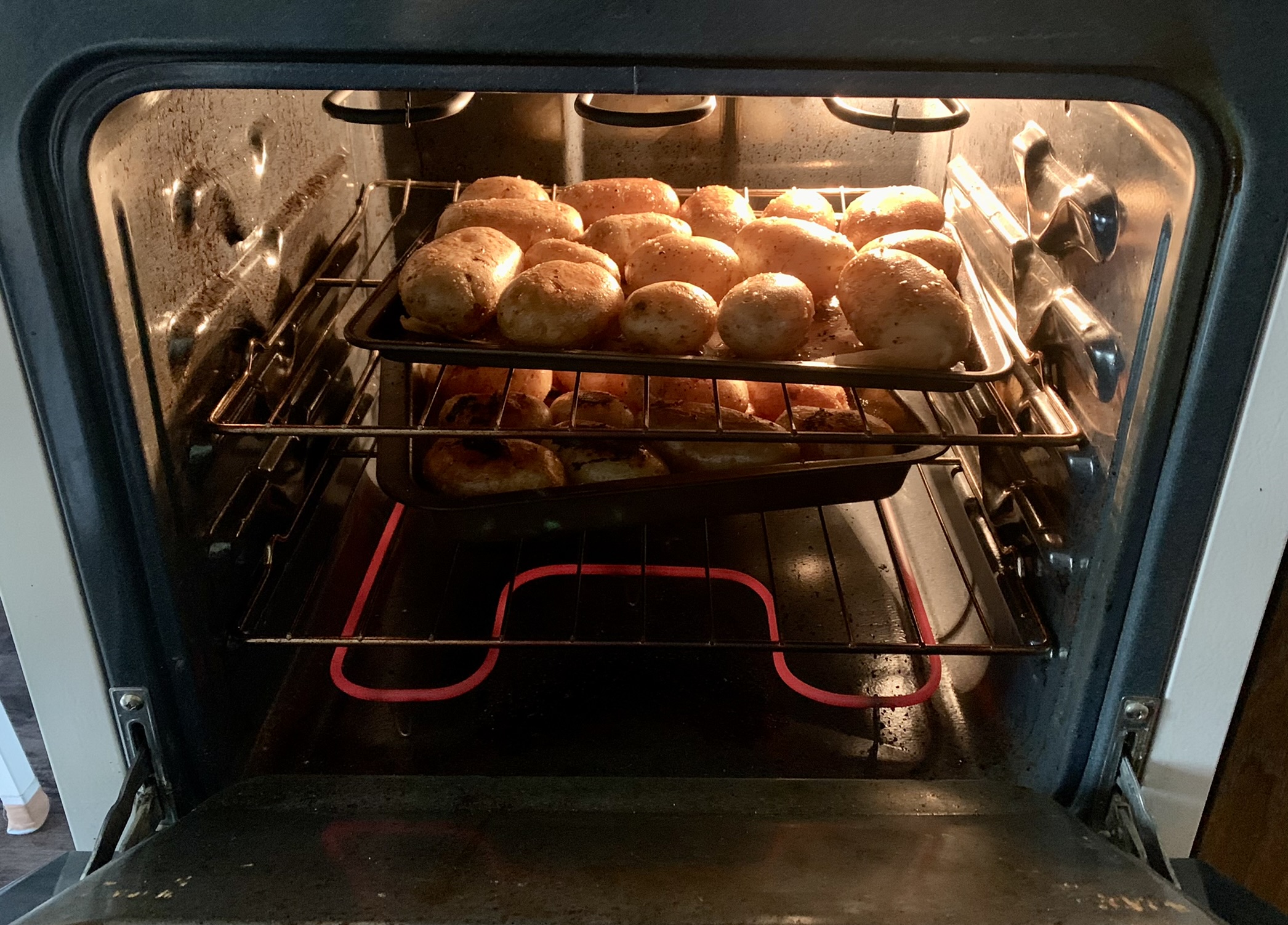
The study recommended avoiding tomatoes and dairy, so our go-to condiments ended up being malt vinegar, Nando’s hot sauce, and Chinese crunchy chili oil (5/5 stars, highly recommend).
As tasty as baked potatoes are, it did not take long for me to miss working more creatively in the kitchen, so I learned how to make potatoes-en-casserole, gunpowder potatoes, and finally unlocked the secret behind actually crispy hashbrowns.
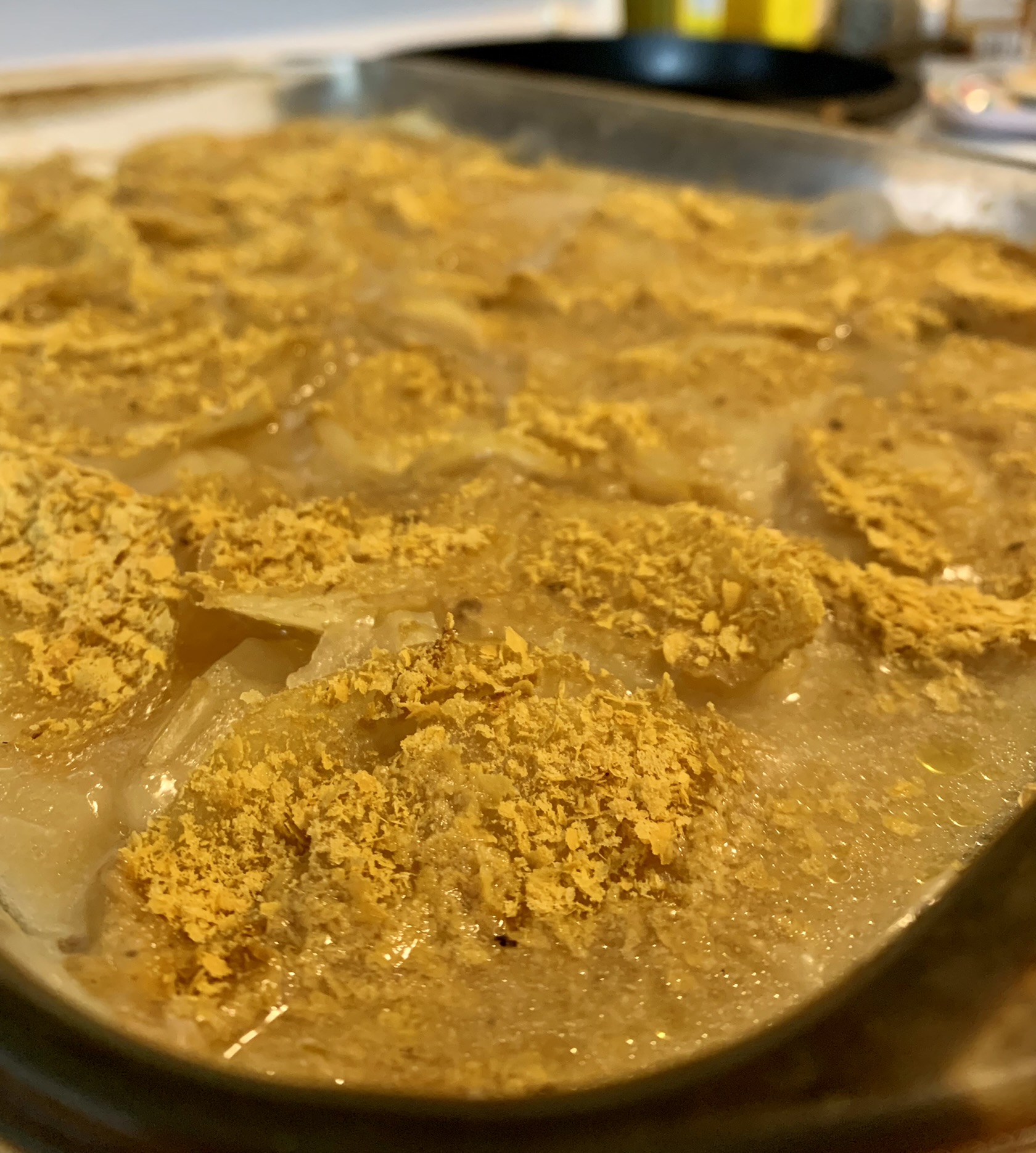
In an unexpected turn of events, two of our friends also decided to take on this absurd diet with us, and together we inadvertently created something of a Potato Cult, calling ourselves Tater Tots and saying such incantations as “All Hail the Round and Brown.” I thought this diet would feel a little isolating, but it ended up bringing us all a bit closer together. In Spud we trust.
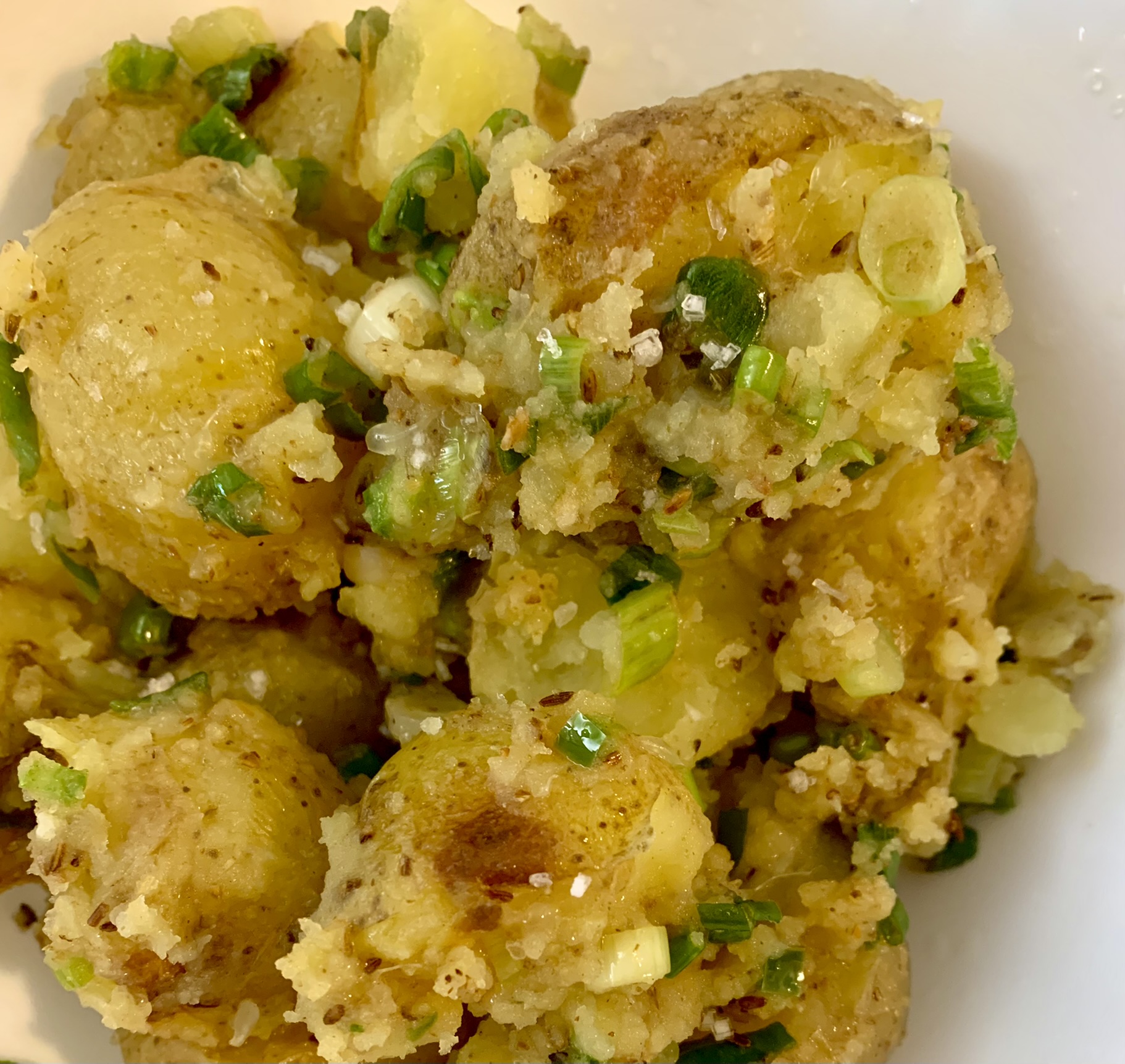
The Potato Results
I lasted a total of 8 days on only potatoes. At the start, we said we’d play it by ear in regards to how long we wanted to do this for, but I initially thought we might go for 28 days, since that is what the original study called for.
What ended up happening is that I could not physically fit 2,000 calories of potatoes into my body in a single day. I think this was partly due to some unhealthy dieting habits I was developing (which I’ll talk about more in the “Other Thoughts” section), and partly just because potatoes are rather filling and it was difficult to eat more than two or three in one sitting. If I wasn’t actively forcing myself to eat my daily 13, I might only end up eating 8 or 9 potatoes in a day (less than 1,500 calories). I was sleeping 9-10 hours a night but still felt exhausted; I had headaches and was irritable; I couldn’t focus on anything for more than a few minutes.
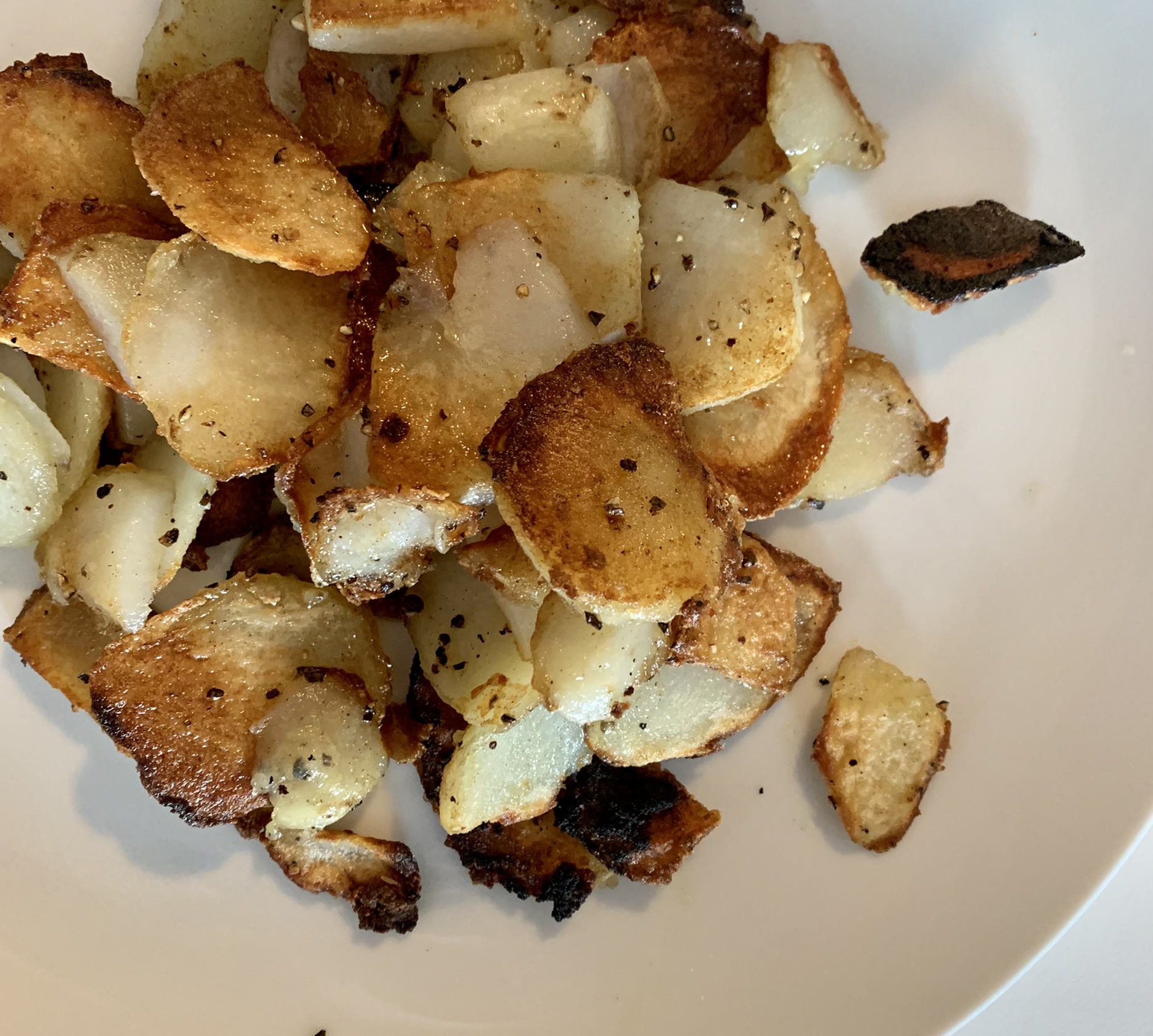
I did experience small bursts of energy throughout the day, so I used some of those times to hangboard and do some conditioning for climbing. Surprisingly, I did not experience any loss in performance, in spite of my calorie deficiency. I wasn’t able to climb during these 8 days since I had injured my knee just before starting, but while on the diet, I was hanging on 18mm with 20 pounds additional weight with ease and have never found pull ups to feel easier. I suspect this trend might not have continued had I remained on the diet, however, given the way the rest of my body was feeling.
My weight fluctuated a lot during the week (more so than it usually does), so I can’t really say whether I lost any weight or not. I was clearly not benefiting on the whole, so after 8 days, I decided to quit and try a modified version of the diet. We began to include vegetables and legumes, but still ate mostly potatoes. It was basically the diet we normally eat, minus calorie-dense foods (RIP peanut butter) and foods we tend to overeat (rice and bread, you are dearly missed).
We followed the modified diet for three weeks, wherein my weight seemed to find some stability at a little less than what I had been prior to our Anniver-ceremony, and my mood/energy/focus improved dramatically.
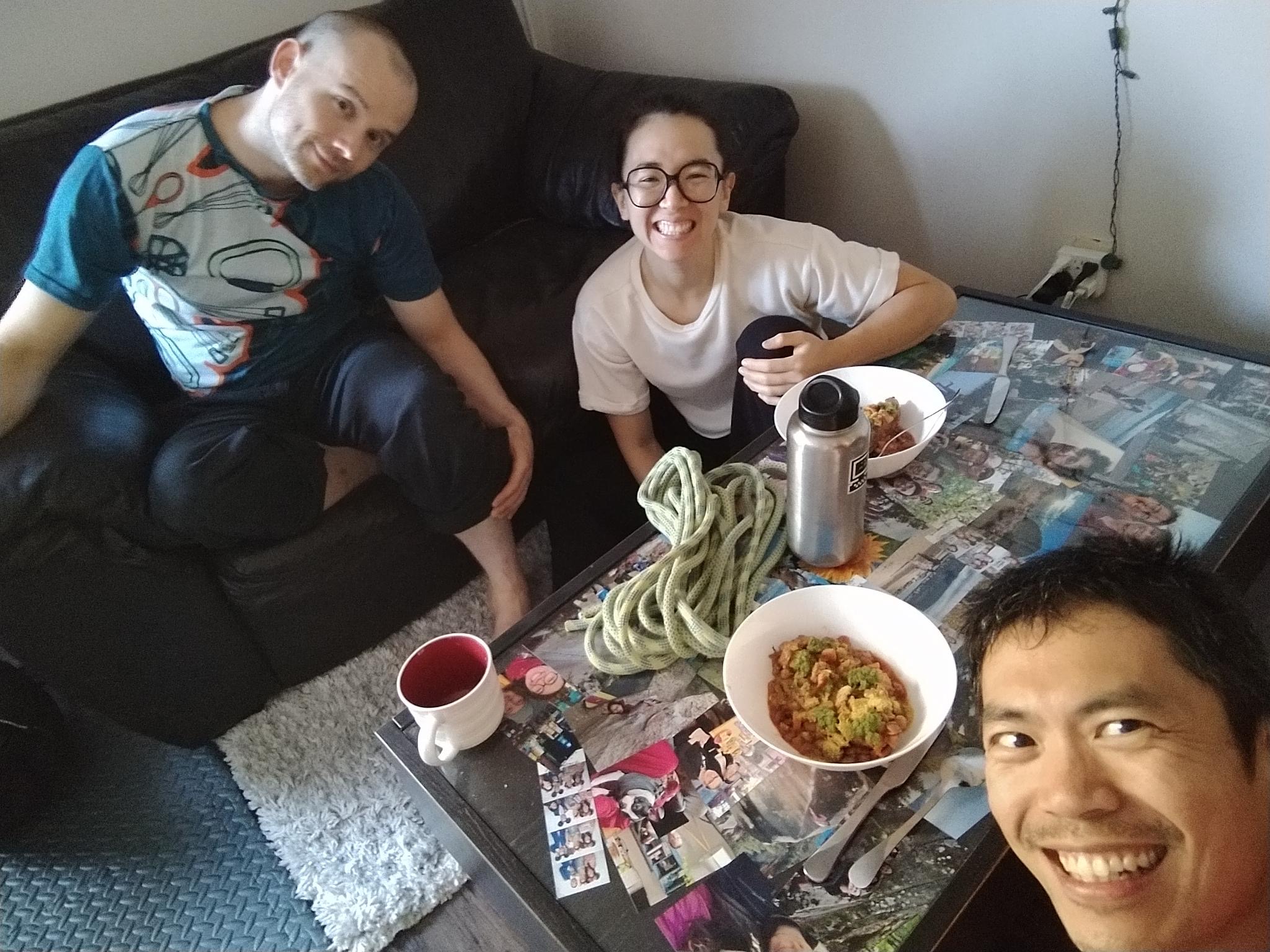
The Potato Conclusions
Would I recommend The Potato Diet?
I’m not sure. The diet itself has easy-to-follow rules and makes shopping and food prep extremely simple. It also seems to allow for fairly significant “cheats,” and even when I felt the worst, I never got sick of potatoes. #bestspuds
Jamie and one of our cult-friends saw really positive results. Jamie lost a bunch of weight and has kept it off, even on the modified diet. His mental focus and mood seems unchanged, he’s climbing stronger sport than he ever has, and I’ve noticed a significant decrease in his appetite (and he looks damn good, if I do say so myself).
For me, however, and perhaps for bodies like mine without a lot of weight to lose, I might not recommend it. It was too difficult for me to reach the calories required for my fairly active lifestyle, and I suffered physically and emotionally for it.
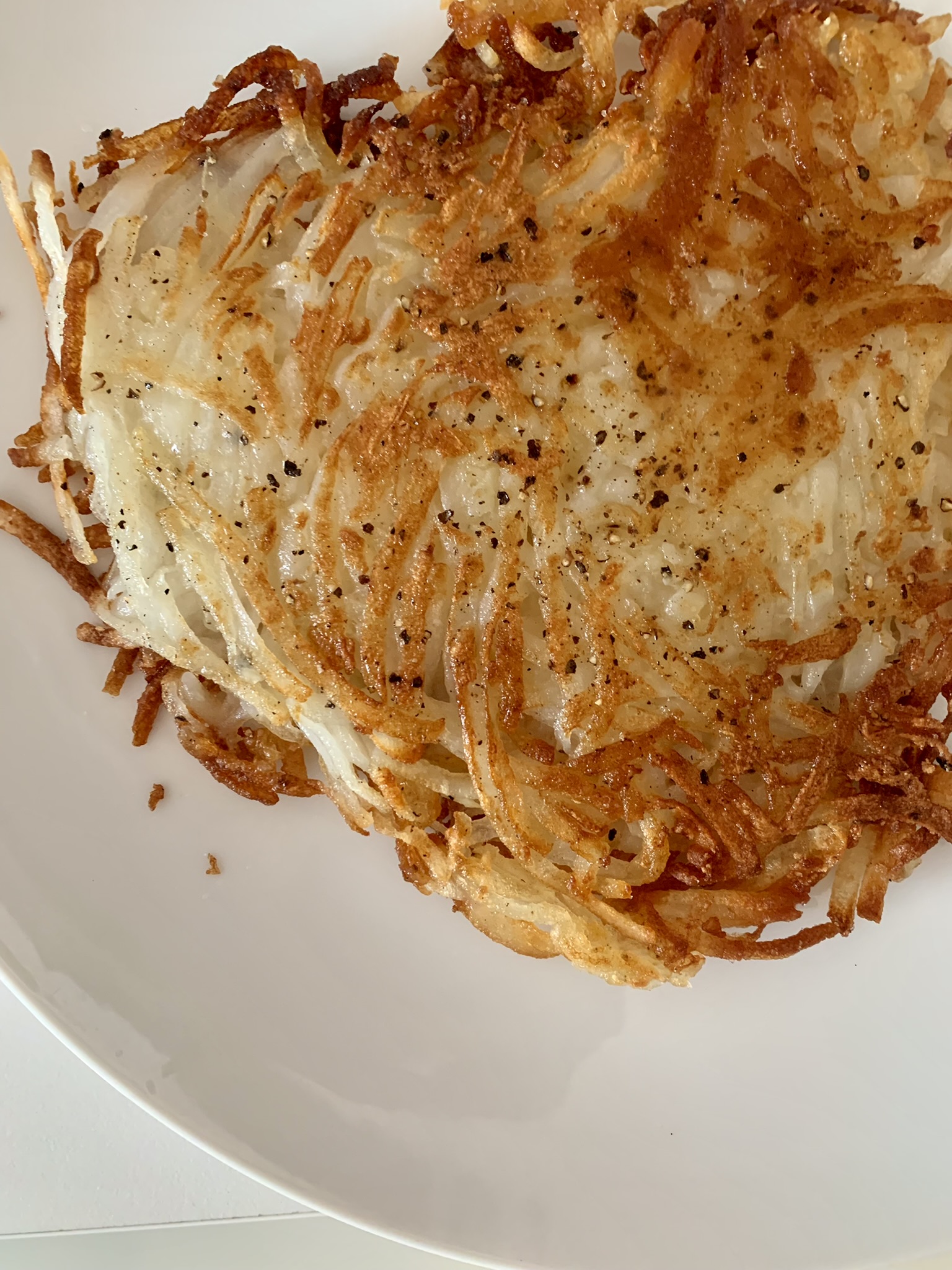
What did I learn?
I used to think potatoes weren’t all that good for you and that eating too much of them made you fat. I tended to avoid eating them, except maybe for special occasions or when I wanted to treat myself.
Now, it’s clear that it’s just the way potatoes are typically prepared that makes them unhealthy (duh), and that a diet largely consisting of potatoes can actually help to manage mine and Jamie’s weights. I’m trying not to focus on why I needed to halfway starve myself in order to see this.
Other thoughts?
I have a tendency to obsess over my weight and how my body looks. I remember feeling the first pangs of insecurity about my body when I was in sixth grade, and no matter how old I get, the thoughts are still there. I know I am not alone here; everyone is faced with a lot of pressure to meet certain standards of beauty and health. The criteria may change, but the expectation to comply is the same.
I noticed that while dieting (even on the modified diet), I was fixating on the number of calories I thought I was consuming and what the scale said that morning, rather than on how hungry I was or how my body and brain were feeling. I knew I should be eating as many potatoes as I could stomach, but I still found myself limiting it because I wanted to see results.
Obviously, that was all counterproductive, and in general, I do want to be healthy and strong. I try to make choices to those ends, but dieting gave my insecurities an opportunity to take the lead. I am lucky to have had Jamie around to see what was happening and help get me in a better headspace.
While The Potato Diet (and probably dieting in general) does not seem like the right answer for me, I’ll keep trying to figure out how not to be hungry all the time.
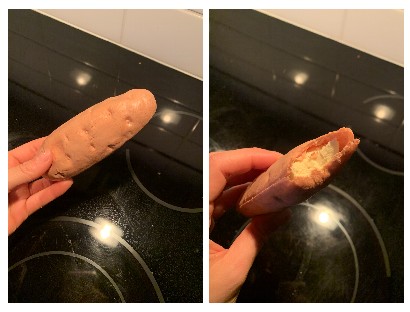
Potato? Ice cream?
